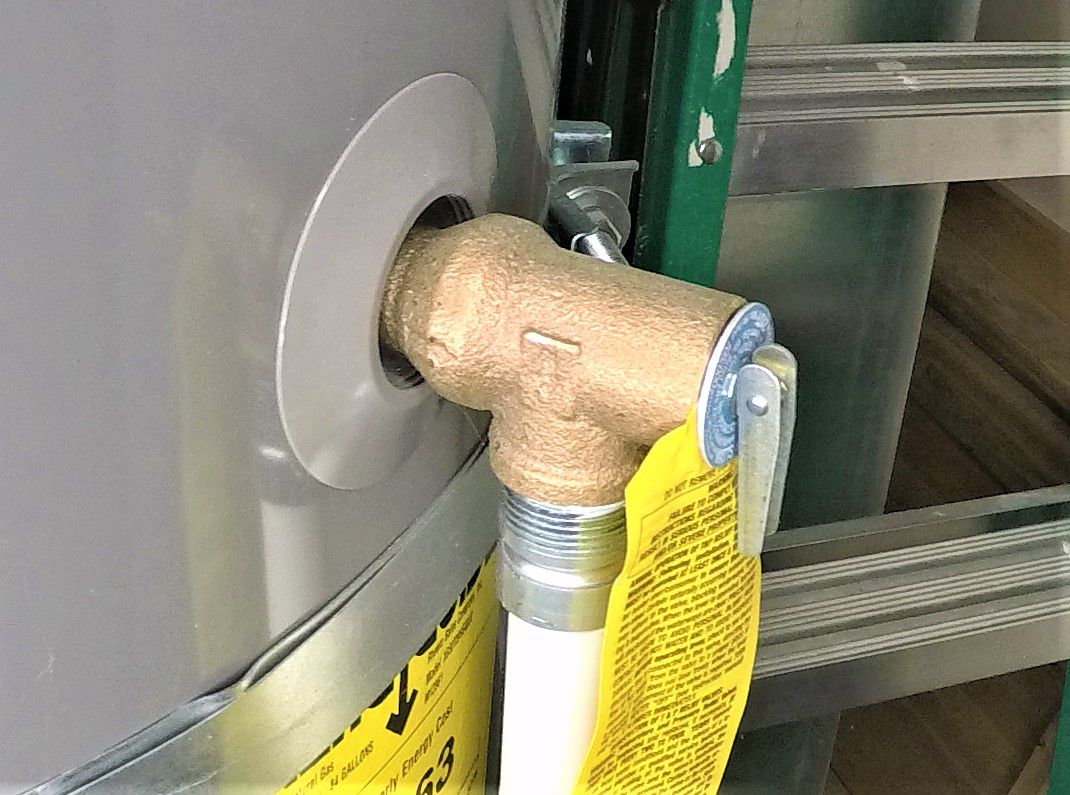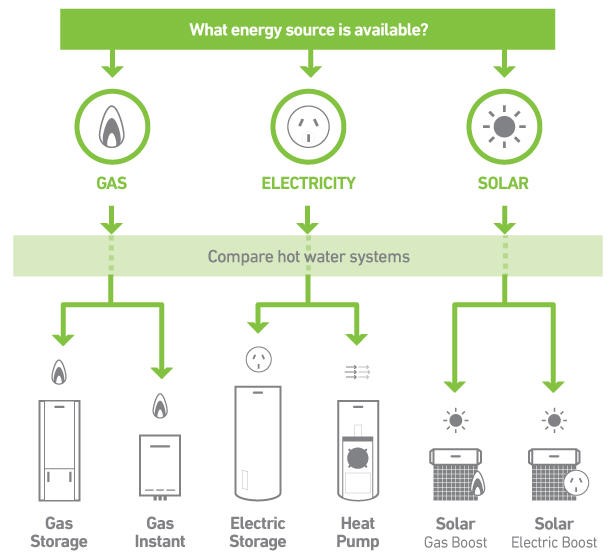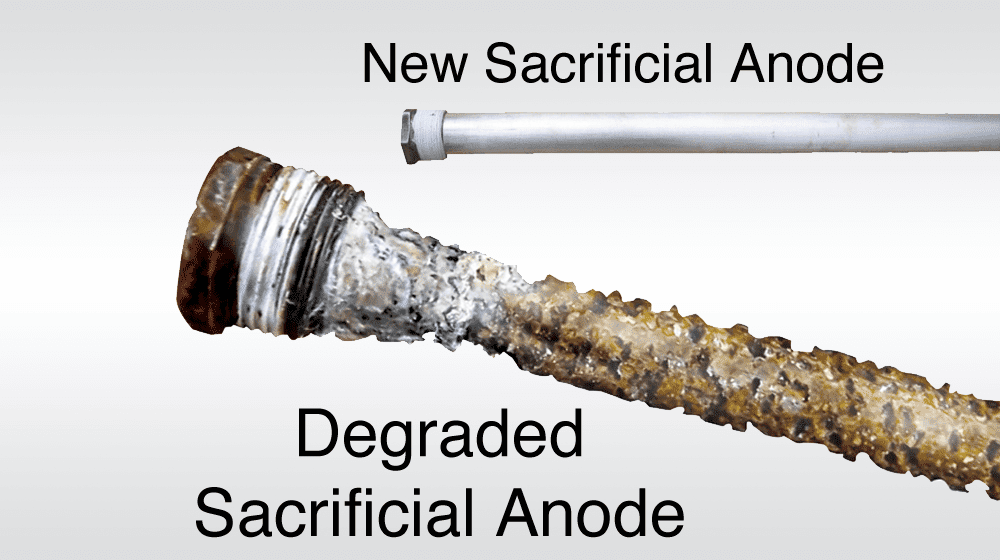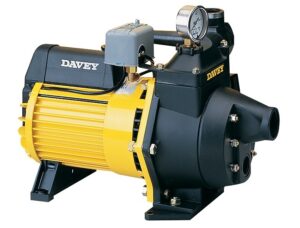Have you ever wondered, “do hot water systems need servicing?” With different types of hot water systems and varying manufacturer recommendations, it can be confusing to determine the correct service intervals. This blog post will guide you through the importance of regular hot water system servicing, factors affecting service frequency, types of hot water systems and their servicing needs, key components to monitor, warning signs that your system needs servicing, benefits of regular servicing, and choosing a qualified professional for the job.
Let’s dive into the world of hot water system maintenance and ensure your system runs efficiently and safely!
Key Takeways
Regular servicing of hot water systems is essential for optimal performance and longevity.
Factors such as system type, usage, and local water quality determine the frequency of service required.
Choosing a qualified professional to perform regular maintenance ensures efficient operation while avoiding potential costly repairs.
Do Hot Water Systems Require Regular Servicing?

Hot water systems are an essential component of any residence, providing us with the comfort of warm showers and efficient use for the family. Regular hot water system maintenance is crucial for optimal performance and mitigating the risk of potential complications. So, do hot water systems necessitate regular servicing? The short answer is yes! Ensuring your hot water system is serviced regularly helps maintain its optimal performance and longevity.
The frequency of hot water servicing depends on various factors, including the type of system, usage, and the water quality in your area. It’s also important to pay attention to any warning signs that your hot water system may require some attention, such as variations in water temperature, strange sounds, or leakage around the unit. Regular servicing can prevent these issues from escalating into more severe problems. See also our video on how to adjust hot water temperatures.
Factors Affecting Service Frequency
The service frequency for hot water systems is highly dependent on factors such as the system type (continuous flow, electric/gas storage, heat pump, solar), usage, and local water quality. Each of these factors can influence how often your hot water system needs servicing, so it’s essential to understand their impact on your specific system.
For example, if your system is located in an area with hard water, it may require more frequent servicing to prevent mineral buildup and maintain efficiency. Additionally, a heavily used hot water system in a large family home may need more frequent servicing compared to a system in a smaller household with less usage.
Always consult your water heater manual for specific servicing recommendations tailored to your system.
Importance of Following Manufacturer Recommendations
Adhering to the manufacturer’s servicing instructions for hot water systems is essential to avoid potential issues and ensure the system’s optimal performance and longevity. Manufacturers understand the design and components of their hot water systems best; thus, their recommendations are tailored to ensure the servicing is conducted correctly and efficiently.
Different systems and brands may have varying servicing requirements, so it’s crucial to take note of the specific servicing needs for your hot water system. For example Dux may last longer before needing servicing that another brand. Following these manufacturer recommendations guarantees optimal functioning and extended life of the system, giving you peace of mind knowing that your hot water system is well-maintained and operating efficiently.
Types of Hot Water Systems and Their Servicing Needs

Image source: On The Job Plumbing
Different types of hot water systems can be found. These include:
Electric storage
Solar
Heat pump
Gas
Each provides different advantages and is suitable for various needs. Each type has its own servicing needs, with electric and gas systems requiring more frequent servicing than solar and heat pump systems.
Knowing the specific servicing needs for your hot water system type is crucial for maintaining optimal performance and preventing potential issues.
Electric Hot Water Systems
Electric hot water systems utilize electric-powered elements at the base of the hot water tank to heat water, which is then stored in a tank until required. A hot water heater, specifically an electric one, should be serviced every 2-3 years to ensure optimal performance and safety.
Regular servicing can help identify and resolve potential issues with the heating elements or thermostat, ensuring consistent water temperature and energy-efficient operation.
Gas Hot Water Systems
A gas hot water system uses either natural gas or liquified petroleum gas (LPG) to heat water. These systems require regular servicing, with some components needing attention every 6 months to 2 years. To ensure optimal performance and extended lifespan, it is recommended to service gas hot water systems every 2 years.
Regular maintenance can help prevent issues with the gas burner, pilot light, and other components, ensuring safe and efficient operation.
Solar Hot Water Systems
Solar hot water systems harness the power of the sun to heat water, making them an eco-friendly and energy-efficient option for your home. These systems generally need servicing every 3-4 years, depending on usage and location. Regular maintenance is essential for prolonging the lifespan of solar hot water systems, which can last up to 15 to 20 years with proper care.
By ensuring your solar hot water system is serviced regularly, you can optimize its performance and efficiency, reducing your energy costs and carbon footprint. Furthermore, regular maintenance can help.
Identify potential issues with the solar collectors, pumps, or other components before they become more serious
Ensure your system continues to operate effectively
Keep those cold showers at bay
Heat Pump Hot Water Systems
Heat pump hot water systems utilize a refrigeration cycle to extract heat from the ambient air to warm water, providing an energy-efficient alternative to traditional electric hot water systems. It is recommended that heat pump hot water systems be serviced every 3-4 years to maintain efficiency and prevent issues.
Adhering to manufacturer recommendations for servicing heat pump systems is crucial, as they are tailored to the system’s design and components, ensuring the servicing is conducted correctly and efficiently.
Key Components to Monitor in Your Hot Water System

To keep your hot water system running smoothly, it’s essential to monitor key components, including:
The water heater
Pipes
Valves
Temperature
Pressure gauge
Temperature/pressure relief valve
By keeping an eye on these crucial components, such as sacrificial anodes, pressure relief valves, and thermostats, you can help prevent issues with your hot water system and ensure its optimal performance.
Regular maintenance of these components is essential to ensure your hot water system is running efficiently and safely.
Sacrificial Anodes
Sacrificial anodes are metal rods installed in hot water systems to protect them from corrosion. These anodes are typically made of magnesium and work by attracting impurities in the water that would otherwise cause corrosion in the tank. Regularly monitoring the condition of your sacrificial anode is essential to ensure it’s functioning optimally and not corroding prematurely, as a worn-out anode can lead to tank corrosion and eventual system failure.
To prevent corrosion and extend the life of your hot water system, sacrificial anodes should be replaced every 3-5 years. This simple maintenance step can have a significant impact on the longevity and performance of your system, helping to avoid costly repairs or replacements down the line.
Pressure Relief Valve
Pressure relief valves are safety devices designed to release pressure from the hot water system if it gets too high. These valves are often located near the top of the unit and play a vital role in preventing pressure buildup, which can lead to system damage or even explosions. Monitoring pressure relief valves is essential to ensure they are functioning correctly and not becoming obstructed.
Pressure relief valves should be checked and tested every 6 months to guarantee optimal performance and safety. If the valve is immovable, does not discharge water, or fails to deactivate, it’s a definite indication that it necessitates immediate replacement. Regularly inspecting and testing your pressure relief valve can help prevent dangerous pressure buildup and keep your hot water system operating safely.
Thermostat and Heating Element
Thermostats regulate the temperature of your hot water system, while heating elements generate heat to warm the water. It’s important to monitor these components to ensure they are functioning optimally and not experiencing any malfunctions, as issues with the thermostat or heating element can lead to inconsistent water temperature or system failure.
Regularly inspecting and servicing thermostats and heating elements can prevent temperature fluctuations and system failures, ensuring your hot water system operates efficiently and maintains a consistent water temperature.
A well-functioning thermostat and heating element play a crucial role in your hot water system’s overall performance and reliability, so it’s essential to keep them in good working order.
Warning Signs Your Hot Water System Needs Servicing
If you notice any warning signs that your hot water system may need servicing, it’s essential to address them promptly to prevent further issues. Inconsistent water temperature, unusual noises, and leaks or water pooling around the unit are all indications that your hot water system may require some attention.
Regular servicing, also known as hot water service, can help resolve these issues and keep your hot water system running smoothly. By scheduling a hot water system service, you can ensure the longevity and efficiency of your system, especially when you get your hot water system serviced.
Inconsistent Water Temperature
Inconsistent water temperature may indicate issues with the thermostat or heating element in your hot water system. If you’re experiencing fluctuations in water temperature or extended heating time, it’s essential to have your system serviced by a professional to identify and resolve any underlying issues.
Regular maintenance can help prevent temperature inconsistencies and ensure your hot water system operates efficiently, providing you with a steady supply of hot water when you need it most.
Unusual Noises
Unusual noises coming from your hot water system can signal problems that require immediate attention. Vibrating or rumbling noises may be caused by an accumulation of minerals and other debris in the pipes, resulting in sediment buildup. Sizzling, hissing, and crackling sounds may be caused by the formation of air bubbles in the pipes.
Another cause of unusual noises in your hot water system is kettling, a rumbling or popping noise that indicates a need for major service. Kettling is caused by limescale buildup in the heat exchanger, which can reduce the system’s efficiency and cause it to overheat.
If you notice any strange noises coming from your hot water system, it’s essential to have it serviced by a professional to identify and address the issue promptly, preventing further damage and potential system failure.
Leaks or Water Pooling
Leaks or water pooling around your hot water system may indicate issues with the tank or pressure relief valve. These issues should be inspected by a professional to identify the cause and provide the necessary repairs or replacements.
If left unaddressed, leaks or water pooling can lead to more severe problems, such as structural damage or mold growth. Regular servicing can help detect and resolve these issues, ensuring your hot water system continues to operate safely and efficiently.
Benefits of Regular Hot Water System Servicing
Regular hot water system servicing offers several advantages, including improved efficiency, extended lifespan, and prevention of costly repairs or replacements. By ensuring your hot water system is serviced regularly, you can maximize its efficiency, resulting in lower energy costs and a reduced carbon footprint. Additionally, regular maintenance can help identify and address any potential issues before they become more serious, thus aiding in extending the unit’s lifespan.
In addition to these benefits, regular servicing can also provide peace of mind, knowing that your hot water system is in good working order and less likely to fail unexpectedly. By investing in regular maintenance, you can avoid the stress and inconvenience of dealing with a malfunctioning or failed hot water system, ensuring a steady supply of hot water for your household’s needs.
Choosing a Qualified Professional for Hot Water System Servicing
Selecting a qualified professional for hot water system servicing offers multiple benefits, such as:
Assurance that the system will be serviced correctly with the correct knowledge and skills
Avoiding potential costly repairs and replacements in the future
Guaranteeing proper upkeep and helping to avert potential issues
Ensuring your system operates efficiently and safely
When choosing a professional for hot water system servicing, look for a licensed plumber or gas fitter with experience in servicing your specific system type. They should be familiar with the manufacturer’s recommendations and be able to address any issues or concerns you may have about your hot water system.
By trusting your hot water system maintenance to a qualified professional, you can rest easy knowing your system is in good hands.
Summary
In conclusion, regular hot water system servicing is essential for maintaining optimal performance, extending the lifespan of your system, and preventing potential issues. Understanding the factors affecting service frequency, the specific servicing needs for different types of hot water systems, and monitoring key components can help you keep your system in top condition. By recognizing warning signs that your system needs servicing and choosing a qualified professional for maintenance, you can ensure the continued efficiency and reliability of your hot water system, providing comfort and peace of mind for you and your family.
Frequently Asked Questions
How often should a hot water heater be serviced?
Regular servicing of your hot water heater is essential for safety and longevity, so it should be done every 12 months for domestic, commercial, and industrial water heaters.
Should hot water heaters be serviced?
Based on the maintenance period guidelines, it is advisable to have your hot water heater serviced annually or every 5 years.
Therefore, regular servicing of hot water heaters is recommended in order to ensure the efficient and effective operation of your system.
How do you maintain a hot water system?
Maintaining a hot water system is important for keeping it running smoothly. Following these steps, including testing the TPR valve, checking the anode rod, draining the tank and washing out sediment, will help ensure its optimal performance.
Adjusting the temperature, insulating pipes, and insulating the heater, are also important steps to take to ensure the system is running at its best.
What maintenance should be done on a hot water heater?
To keep your hot water heater working properly, it’s important to regularly inspect and maintain it. This includes draining the tank to remove sediment, checking temperature and pressure relief valves, and inspecting the anode rod for corrosion.
Additionally, it’s beneficial to flush the system annually to reduce mineral build-up.
How often should I service my electric hot water system?
To ensure the best safety and performance of your electric hot water system, it is advisable to have it serviced every two to three years.





